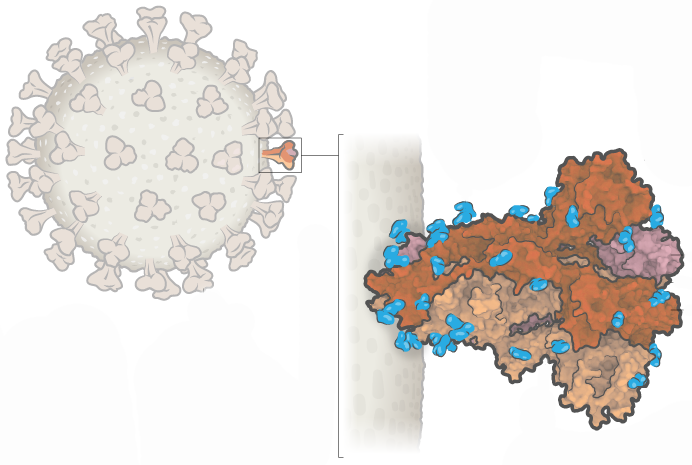Recombinant Subunit Vaccine Development Services for Coronavirus
Vaccines are powerful weapons against many human diseases, especially infectious diseases. In response to coronavirus infections, Creative Biostructure, with its expertise in structural biology and protein engineering, now provides comprehensive preclinical research services for the development of recombinant subunit vaccines for coronavirus infection. Our scientists are working to improve structure-based vaccine design and develop novel methods that can increase accessibility and reduce costs.
Brief Introduction to Recombinant Subunit Vaccine

Although inactivated or attenuated virus vaccines based on the whole cell structure have achieved great success, they have many shortcomings. First, they need to deal with highly active virus strains, so they must be developed in a laboratory with specific specifications. Secondly, their antigen components are diverse, thus the immune response caused by them is more complex and intense.
In order to solve these problems, some subunits of the pathogen that can induce the specific immune response of the human body are prepared as vaccines, thereby avoiding the side effects caused by viral replication and the unwanted immune response, and greatly improving the safety of the vaccine. However, a disadvantage of these high-purity subunit vaccines is that due to the lack of many intrinsic pathogenic characteristics of the pathogen, their immunogenicity is generally not high, which makes it difficult to induce a specific immune response in vivo. Therefore, some adjuvants (such as aluminum hydroxide) need to be added to stimulate the body’s immune response, to improve the body’s ability to respond to such subunit vaccines.
Recombinant Subunit Vaccine Development Services for Coronavirus
Creative Biostructure provides some preclinical research services for the development of recombinant subunit vaccines for SARS-CoV-2. Subunit vaccines contain only antigens that can induce specific immune responses. Our various protein expression systems, such as those of E. coli, yeast, insect cells, and mammalian cells, and advanced protein purification techniques and equipment ensure the preparation of high-purity antigens.
The immunogenicity deficiency of subunit vaccines is due to the loss of many characteristics of the pathogen, such as structural and conformational distortions of these subunits. The spike (S) protein of SARS-CoV-2 usually binds to the host cell surface receptor ACE2 in the form of a trimer and mediates subsequent virus entry in vivo, thus the trimer S protein theoretically has better immunogenicity. As an expert in protein structural biology, we can use novel technologies to simulate the original pathogen protein structure to increase the immunogenicity of subunit vaccines.
If you are interested in the development of subunit vaccines for coronavirus, please feel free to contact us, and our customer service representatives are available 24 hours a day from Monday to Sunday. Our professional and dedicated experts will provide comprehensive pre-sales and after-sales services, as well as complete technical support and custom solutions.
Contact us to discuss your project!


